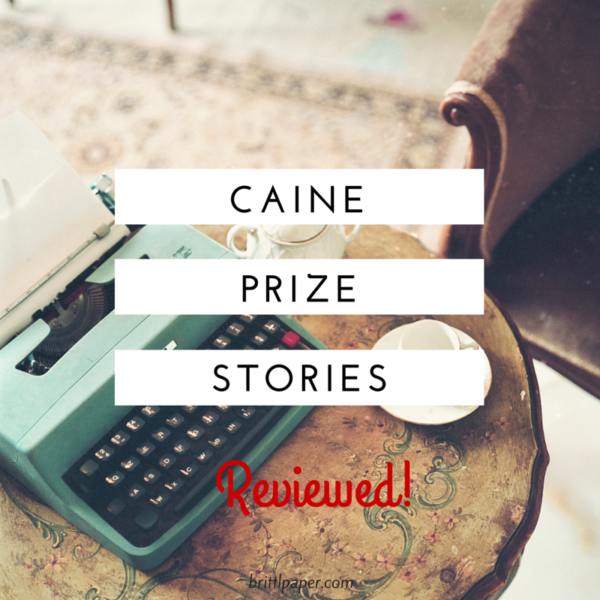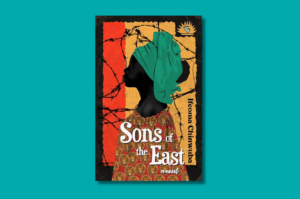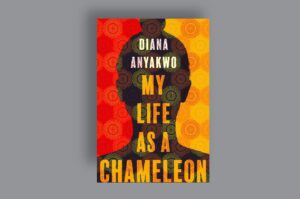The LifeBloom Gift is delightful. That was the word that stayed with me after I finished the story, and that is the feeling that powers its 11 pages: moments of actual delight, caused by the story’s sweet absurdity, its utter strangeness, and the intimate and convincing voice of the narrator—an unnamed TSA agent about whom we discover very little. But for all that delight, for all the weird, gorgeous detail, for all the unexpected charm of its often repulsive subject matter, The Lifebloom Gift doesn’t completely reach its full potential, and that is only because Adan edges so near to a truly great short story.
The Lifebloom Gift is a defensive narrative, literally—our narrator has been fired from his job at the airport and claims that his boss has encouraged a traveller to file sexual harassment charges against him. “This was like the most preposterous thing,” he tells us, in his fantastic voice, “Everyone knows I am straight.” He then launches into an explanation of what he says really happened: he had identified a male Turkish traveller as a “Lifebloomer,” one of a breed of special people who have special moles on their body, which can be pressed by someone who knows how to do it, and in the pressing, the Lifebloomer will experience, vividly, what love feels like. All he was trying to do was to give the Turkish traveller this experience, by touching a mole behind his knee for a full thirty seconds. This is the story that our narrator intends to tell the judge in court.
Adan is not as clear as he might be on exactly how Lifeblooming works and where it comes from (it seems to have an alien connection), but the story’s overwhelming achievement is Ted Lifebloom, one of the leading characters in the narrative and the central agent of all Lifebloomers and Lifeblooming. Ted is an obese 30 year old man living with his mother in St. Louis, whom the narrator met some years ago and quickly fell into adoring worship of, and from whom he learned the art of Lifeblooming (that is, pressing moles). Ted is a slob (“he is pretty much slothful”, the narrator tells us). He has had one romantic relationship in his life. As a child, he had a habit of cupping his mother’s breasts. He doesn’t understand anything that doesn’t have a texture (he is exclusively tactile and denies the existence of things he can’t touch, like the moon). He appears to mimic real emotions in shallow ways, and his father loves him so much he has never been able to stop cuddling him. Yet for all that, Ted, whom the narrator calls his “darlingest”, is supernaturally gifted: there is nothing like being touched by him. To be touched by him, the narrator giddily tells us, is to experience love, real love, the love at the center of the universe.
If this story can be measured in delight—if that is its essence—it is no greater than when Adan has his narrator try to explain the quality of this feeling. However, because the feeling is so profound and overwhelming and beyond ordinary human experience, what comes out are moments of inarticulate beauty and strange surreal lists of sensation. “Let me put it this way,” the narrator says, telling us of the first time he was touched by Ted, “I heard the song of birds and sneezes of horses, smelled the fur of dogs, felt a twitch in one of my nipples which, in turn, transformed into a brown lactating nipple…”, and then trails off, unable to continue, frustrated by his ability to capture what it was really like. On one occasion, the Ted asks if he can stroke the narrator’s hand. Afterwards, all the narrator can offer us are “visions of smoothness” followed by a bizarre list of other things known to him, including “special moles found on the bodies of aristocratic females of Kazakhstan, the dreadlocks of brotherly black men, the humble delicacy of certain unreachably shy females, the freckled faces of English tourists on African beaches, the moans of Asian porn stars.”
If the story’s first achievement is Ted, the second is the loving relationship between the narrator and Ted. Ted is horrible. Ted is absurd. Ted refuses to get a job. Ted has moments of amnesia. Ted wears ill-fitting clothes. Ted and the narrator break into a nursing home to harass the body of an old man, whom they’ve identified as a Lifebloomer due to his moles, and leave him helpless and distressed. Ted is, quite clearly, suffering from some kind of illness, and the narrator is trapped in Ted’s mind with him, in a world that purports to be built of and concerned with love. A briefly flaring folie a deux that sets the narrator off course forever. All this our narrator believes a court of law will find reasonable and convincing.
The landscape of the story is full of potential—we have a situation ripe for fiction (an upcoming trial, requiring a minor Humbert Humbert style justification), an intriguing central character (Ted), and a strange and oddly beautiful relationship (the narrator and Ted), yet the story never quite reaches its apex. They assault the old man in the nursing home, Ted disappears, and the narrator, profoundly changed, attempts to continue his legacy, but something is missing.
The story is too great in scope for these eleven pages, the scale too epic, the imagery too fantastic, and it feels as though we reached the first, small climax, only to be denied what naturally comes afterwards. It seems not a failure of the instincts or talents of the writer—Adan is too much in command and too able to wield beauty and strangeness for that. It simply feels as if the story was not pushed far enough as might have been, and that its great promise did not completely play out. I would have liked to know more about Lifeblooming. I would’ve liked to discover how the narrator thought of Ted after he disappeared. I would’ve liked to know more about how this world of pure sensuality and connection with another man jives with the narrator’s constant protestations about his sexuality. I would have liked to know what it would be like to discover a word of tactile gorgeousness, and what it is like to touch everything after that—is every ordinary texture and surface changed?
I note that this story comes from the 2014 Caine Prize anthology, which usually constitutes the shortlisted stories for that year and the stories written at the Caine Prize workshop. I can only speculate, but having just been through this year’s Caine Prize workshop, I wondered if Adan was restricted by the workshop model, in which, ordinarily, stories must be written from conception to publication in a period of about two weeks, with only copy-editing taking place afterwards. It is entirely possible that The Lifebloom Gift is exactly as Adan wanted it, and it is a wonderful story, but it also seems possible to me that with a little more time it could have become a greater story than it is. The Lifebloom Gift doesn’t, somehow, fully bloom. Almost, but not quite.
The Caine Prize is in a state of flux. It must now decide whether it is a prize of emerging writing or the best writing, and the workshop model will need to be adjusted to meet the objective of the prize. But while a limited period in which to develop and write stories can be helpful, and can force a writer to produce work and get it out there, it is also possible that it may inhibit certain stories, and deny them the time to breathe and to develop the way that they naturally should.
Because this is the Caine Prize for African Writing, it is perhaps incumbent on me to say something about what this story means for African Writing, and to take the temperature of African Writing by looking at how this story relates to the rest of this year’s shortlist. But, quite frankly, if this year’s shortlist and The Lifebloom Gift indicates anything, it is that such an exercise seems less and less relevant. What the relationship of The Lifebloom Gift is to Africa is completely unclear—apart from the fact that it was written by an African writer—it appears to have no particular relationship to the entirety of the continent or any of its constituent parts at all (it’s set entirely in the US). So we need not discuss it by what “type” of African story it is—we can instead talk about its sentences, its craft, its lyricism, its potential—and isn’t that kind of better?
When Namwali Serpell won the Caine Prize last year for her story The Sack, it was the more experimental nature of the writing that impressed the judges, amongst other things. We seem to be moving into a freer age for Caine Prize hopefuls, where a Caine Prize story may not even need to concern itself with Africa, let alone its “gritty realism.” For my part, I think this is a good thing. In his review of another story on this year’s shortlist, Leslie Nneka Arimah’s What It Means, Oris Aigbokhaevbolo writes that, “not too many characters laugh in a Caine Prize story. Not too many readers either,” but The Lifebloom Gift is the weird tonic for that. Let’s welcome the sci-fi and the surrealism, the experimental and the unexpected. Let’s look for delight.
*********
About the Author:
 F.T. Kola is a fellow in fiction at the Michener Center for Writers at the University of Texas at Austin, where she also serves as an editorial assistant for the O Henry Prize. She was shortlisted for the 2015 Caine Prize for African Writing. Her work has appeared in One Story and The Guardian.
F.T. Kola is a fellow in fiction at the Michener Center for Writers at the University of Texas at Austin, where she also serves as an editorial assistant for the O Henry Prize. She was shortlisted for the 2015 Caine Prize for African Writing. Her work has appeared in One Story and The Guardian.










COMMENTS -
Reader Interactions